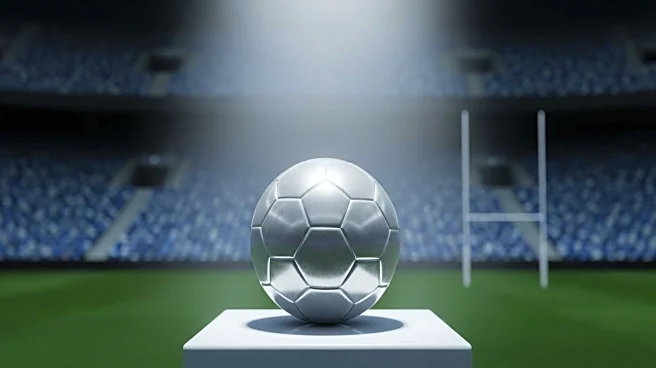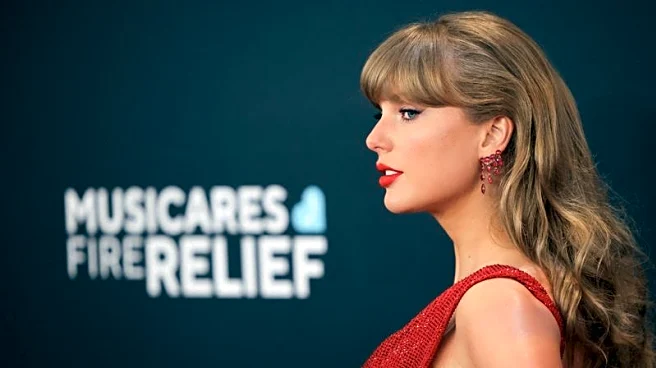What's Happening?
Cristiano Ronaldo has set a new record for the most goals scored in World Cup qualifying matches, reaching 41 goals in 50 appearances. This achievement came during Portugal's 2-2 draw with Hungary in Lisbon.
Ronaldo's first goal broke the previous record held by Carlos Ruiz of Guatemala, and his second goal extended his lead. Despite Ronaldo's efforts, Portugal was unable to secure their place in the 2026 World Cup, as Hungary equalized in stoppage time. Portugal currently leads their qualifying group with 10 points, while Hungary follows with five points. Portugal will have another opportunity to clinch their World Cup spot in upcoming matches against Ireland and Armenia.
Why It's Important?
Ronaldo's record-breaking performance underscores his enduring impact on international soccer and highlights his role as a key player for Portugal. His ability to consistently score in World Cup qualifiers enhances Portugal's chances of securing a spot in the tournament. The draw against Hungary, however, indicates that Portugal must remain vigilant in their remaining matches to ensure qualification. Ronaldo's continued presence in the team is crucial as he aims to lead Portugal to their first World Cup victory, which would be a significant achievement for the nation and for Ronaldo personally.
What's Next?
Portugal will aim to secure their World Cup qualification in the next round of matches against Ireland and Armenia. The team will need to strategize effectively to avoid any setbacks similar to the draw against Hungary. Ronaldo's performance will be pivotal in these matches, and his leadership on the field will be essential for Portugal's success. The upcoming games will be closely watched by fans and analysts, as Portugal seeks to confirm their place in the 2026 World Cup.
Beyond the Headlines
Ronaldo's record not only highlights his individual talent but also raises questions about the longevity and evolution of soccer careers. As Ronaldo approaches the age of 41, his continued excellence challenges conventional expectations about age and athletic performance. This could inspire discussions on training, fitness, and career management for athletes aiming to extend their competitive years.











